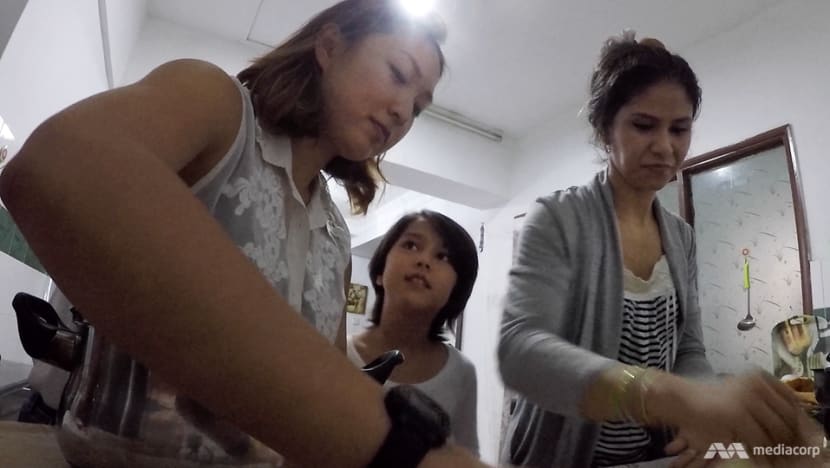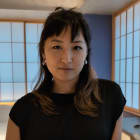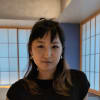'I'm a refugee, not useless': In Malaysia, they who lost it all help uplift others
Living in limbo hasn't stopped some of the country's 160,000-plus refugees from being driven to build new lives for their communities - be it through setting up schools or arts troupes, as CNA Insider finds out.
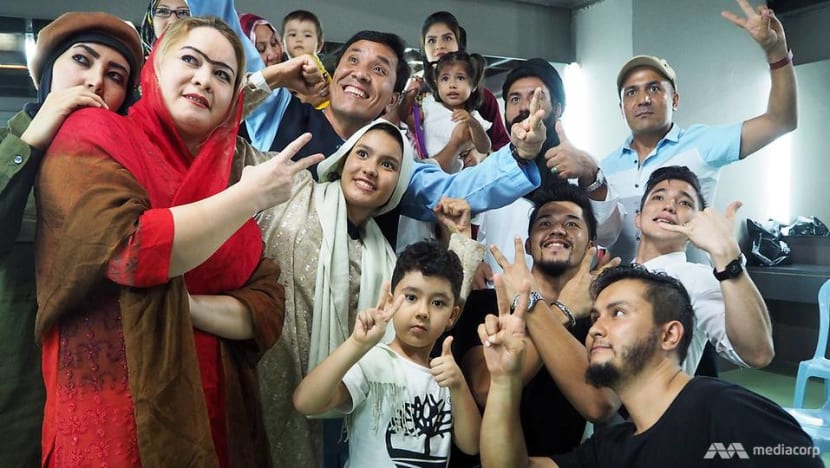
Actors of Parastoo, a theatre troupe set up by Afghan playwright and refugee Saleh Sepas. (Photos & video by Lam Shushan)
KUALA LUMPUR: Sitting in a circle, the women one by one took turns to read aloud from their notes. “I’ve been suffering since yesterday,” recited one lady in English.
Suffering from a fever, a cold, a headache – they learnt to say a litany of symptoms. Basic though the conversation might be, without this they wouldn't be able to tell a doctor what was wrong with them, and get the right - or even any - treatment.
A few words that made all the difference from total helplessness.
The 18-year-old responsible for starting such classes? He was one of their own - that is to say, one of approximately 77,000 Rohingya refugees and asylum seekers in Malaysia.
Mohamudul Hasson Roshid arrived in the country in 2016. Fresh off the boat after a harrowing journey from Bangladesh via Aceh, the teenager quickly set about looking to the needs of his fellow refugees who, unlike him, didn't have the advantage of knowing English.
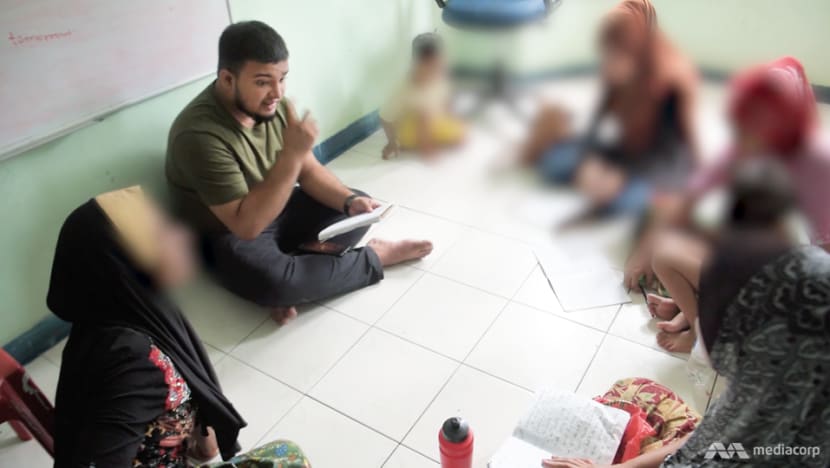
He co-founded the Rohingya Peace Institute as a school for his community; he also established a health project for Rohingya families, supporting them in their medical cases. And he's still not done with uplifting his displaced community, for whom he hopes to be a voice.
In another part of Kuala Lumpur, 36-year-old Afghan Saleh Sepas is giving fellow refugees the chance to be their own voice – as part of a theatre troupe.
Feeling isolated and disenfranchised his first year here, he came to realise that was what many of the 1,600-plus Afghan refugees and asylum seekers in the country grappled with as well. And so he founded Parastoo Theatre as their outlet.
Now, he's raising awareness about Malaysia's refugee population – officially numbering more than 160,000, one of the largest in South-East Asia.
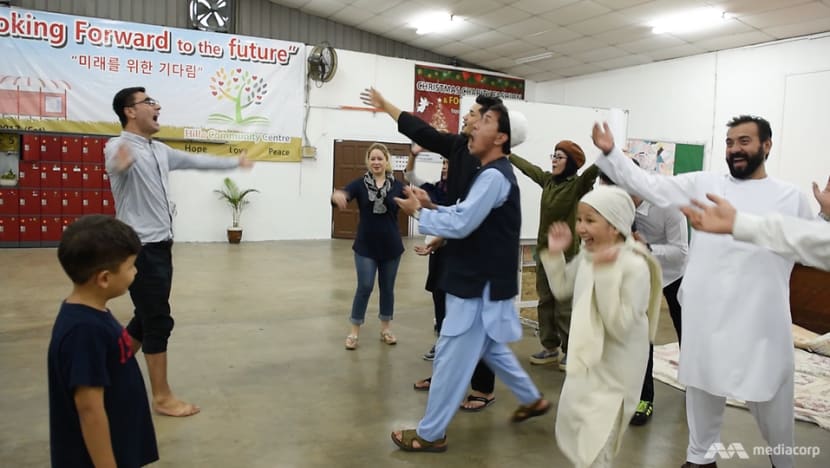
It's not an immediately visible fact, because the refugees don't live in camps as they do in some other host countries; instead, families set up home in any low-cost housing they can afford.
And because they have no legal status in Malaysia, even if they are registered with the office of the United Nations High Commissioner for Refugees (UNHCR), they are unable to officially work - though work they must, often in low-paying menial jobs that see them exploited - or to attend government schools.
But amid this indefinite state of limbo, some are striving to build new lives for their community in a new land.
WATCH: Their Malaysian dream (14:17)
BORN IN A REFUGEE CAMP, LOST AT SEA
Mr Hasson was born in Bangladesh in the Nayapara refugee camp, where the only education available was up to the third grade. Eventually, his father managed to get him a fake identity and enroll him in a government school, where he studied until the ninth grade.
“It was really good. I enjoyed with my friends and going to school,” recalled the youth who had dreams of becoming a doctor like his dad.
But when his true identity as a Rohingya refugee was discovered, he was kicked out of school. “It shocked me. It pushed me to decide to go somewhere else, to leave that country." Determined to chase his dream, he wouldn't settle for life in camp “like a prison”.
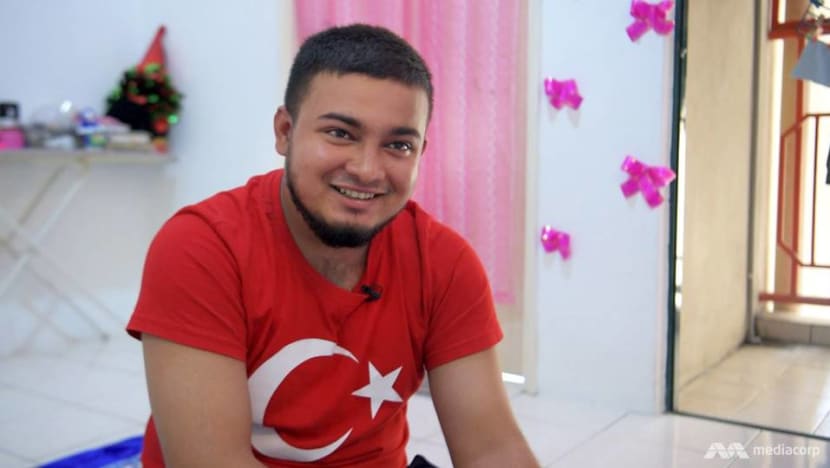
His departure was sudden: The day after contacting a trafficker, he was picked up outside the camp. His last words to his unsuspecting mother were, “Don’t open my room until I come back”.
He was told he could reach Malaysia in three days by boat. He ended up stuck at sea for two to three months, smack in the middle of the Andaman Sea boat crisis of 2015.
He survived; others were less lucky. He remembers that when the traffickers decided to transfer everyone from three boats to one boat, one of the refugees protested against it.
“They shot this guy who spoke up, and then just threw him into the water. So when everyone saw this, everyone was silent,” he recalled, adding that the traffickers were carrying not only guns but bombs.
Asked if he'd felt in danger, he replied: “Every second.”
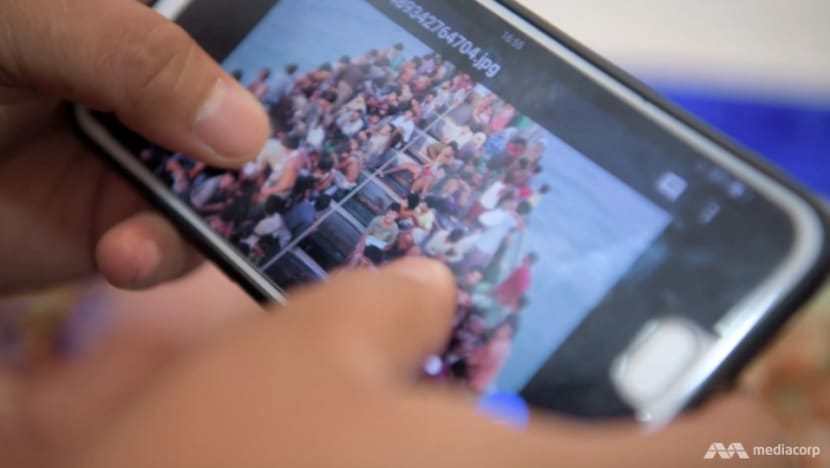
After the traffickers abandoned them, they ended up in Indonesian waters and were sent back and forth by the Indonesia and Malaysian authorities – until a fight between the Bangladeshi and Myanmar migrants caused a hole on the boat.
Mr Hasson jumped into the sea. He was in the water for about five hours, hanging on to floating wood, when Acehnese fisherman rescued the capsized refugees.
Just days after the dramatic rescue, while he was still recovering, he started helping the Langsa hospital in Aceh with interpretation as he could speak English, Rohingya and Bengali.
As the months passed, he befriended the locals and didn't particularly miss his family (although he did call his mother). Life seemed good. But one day, he realised he'd forgotten his dream of a medical education in Malaysia.
His drive renewed, he called a trafficker again. And in January 2016, he finally reached Malaysia. It took one day by boat.
GRADUATED FROM UNIVERSITY
Back home in Ghazni province in Afghanistan, Mr Sepas was also blessed to have the support of a father who, despite being illiterate, was “always motivating and helping” him and his brothers to study.
“He would … bear many problems, but he never asked us to leave school, or to delay our studies,” said the bespectacled man. “I mean, with his salary as a labourer, he’d send us to university and school.”
Mr Sepas was one of 12 students enrolled in the theatre course in the Faculty of Fine Arts at Kabul University when it reopened in 2001, following the fall of the Taliban.
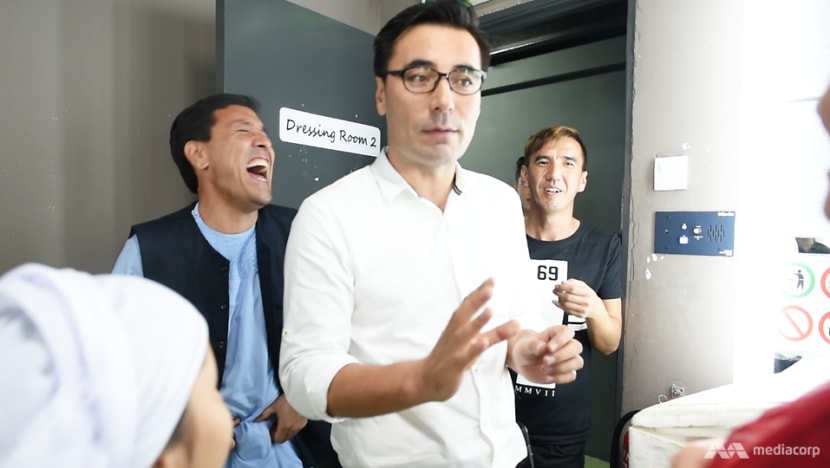
After graduating, he worked in local radio and television organisations before joining BBC Radio in 2008. There, he worked on a programme in his country about the family, women’s role in the economy, freedom of speech, democracy and human rights.
And when BBC Radio decided in 2010 to work on theatre in Afghanistan, he got into Theatre of the Oppressed, which uses theatre as a tool for social change.
But to the Taliban, which sought to control Afghan society, his work on radio and in bringing theatre to marginalised communities as a means of empowerment was subversive.
Mr Sepas, a member of the persecuted Hazara ethnic group, says that he was put on the Taliban’s blacklist. "If I’d continued my work in Afghanistan, they’d surely have killed me – not only me but my family,” he said.
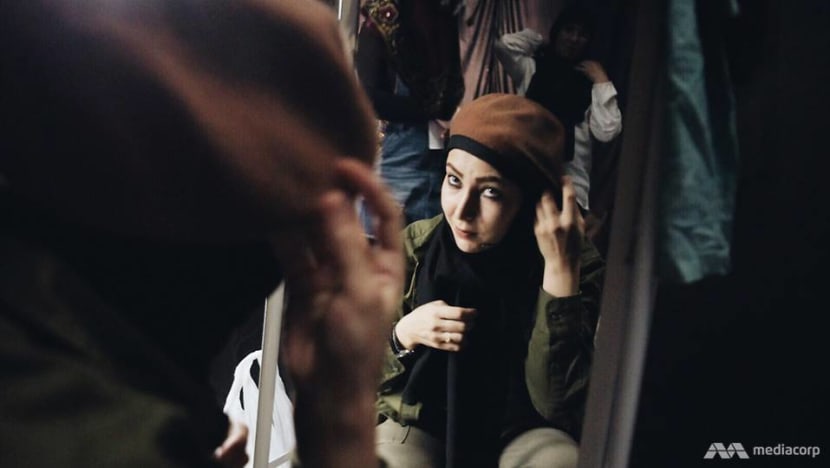
In the end, they sought asylum in Malaysia. In 2016 his wife and three young children arrived by plane with help from smugglers.
Those were intolerable moments – that one had to leave everything without reasonable excuse, and become displaced and miserable.
"I try to forget those moments," he said.
In Kuala Lumpur, to support his family, he was ready to swallow his pride and find work where he could, and got his first job as a furniture mover.
“(That first day) was the worst day of my life,” he said. “The client told us that there wasn’t much furniture, but it was three times what they had told us … It was very unbearable physical work.”
That night, his wife and children were waiting for him to return, and when he did – after being paid RM100 (S$33) – he was so tired that he “burst into tears”.
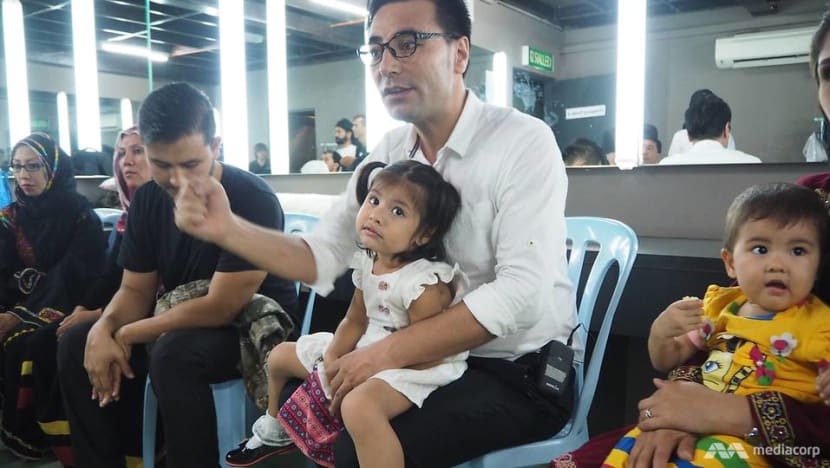
It is not an uncommon story to hear among refugees, of those who work illicitly in service jobs or construction and are shortchanged on their pay - if they get paid at all - with no recourse.
REFUGEES TURNED ACTORS
As mid-2017 approached, his family's “hardship, uneasiness and bitterness” lessened, and it occurred to Mr Sepas that he should “do some activities” for other refugees.
“Honestly, seeing the refugees' situation in Malaysia, they were people who were just breathing,” he said.
“I thought of doing something that even if nothing changes, the achievement could be hope …
People smile at least for a moment, and trust that there’ll be a future, and that future’s a bright one.
He decided to start an Afghan refugee theatre troupe. He chose the name Parastoo – which is Persian for “swallow”, the migratory songbird – to match the refugees’ situation.
His focus was especially on the youth, as “they were suffering from having no destination”. He said: “Because of legal limitations they have lost educational, financial, social and cultural opportunities.”
Mr Sepas wanted to establish a place where they could “show their skills and strengths and use them”.
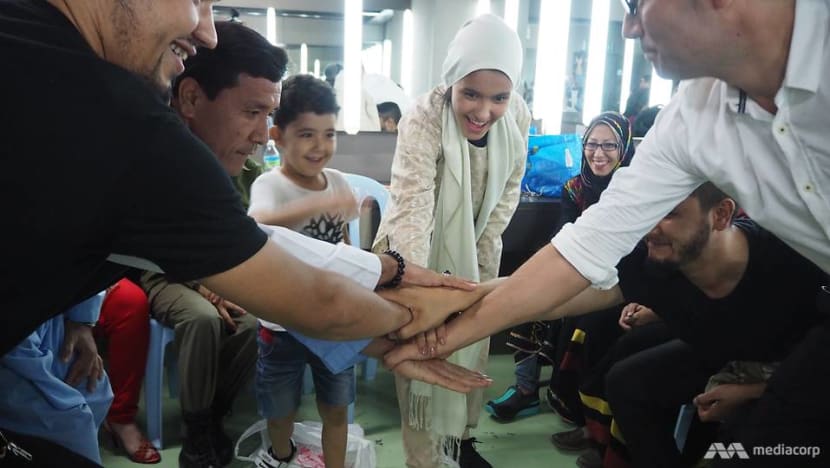
Parastoo’s first play was at a refugee festival that August, performed with six actors. It was a small-scale start, but the challenges grew bigger.
The troupe members were doing theatre for the first time and rehearsing for performances after their work. The rehearsals tended to be cut short because they "were really tired”.
Mr Sepas also struggled to find a rehearsal place because of rent, before he found a hall in a school run by a voluntary welfare organisation for RM400 a month.
He was paying for some of the troupe’s costs out of pocket, but the biggest cost – the actors’ wages, which he promised would be RM30 per rehearsal – was not something he could afford.
By January 2018, he had 12 actors whom he owed RM14,000 in total. “Sometimes they'd say, ‘If you don’t pay my salary, I won’t continue'. I’d say, ‘Please don’t be like this because we go slowly for a good future.’”
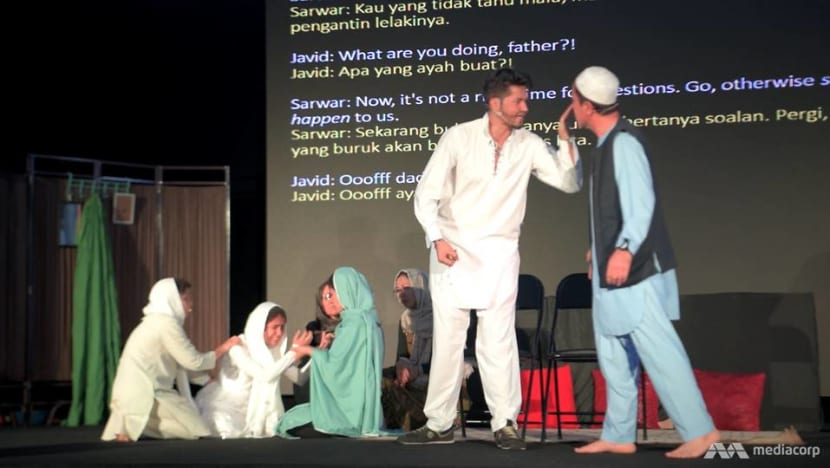
But these are problems he does not allow to get in the way of the big picture of what he wants to achieve with Parastoo.
It's embodied in 11-year-old Fatimah Jafari, for example. The troupe's youngest member, who only learnt from her parents last year that she was a refugee, said her experience with theatre has made her a more confident person.
“I was like a mouse that never came out of the hole (before),” she said. Now, the little Hazara girl wants to even become president of her country someday, or of her “next country” if she can’t in Afghanistan.
She added, with all the determined idealism of the young: “The first thing I’d change: No poor is allowed.”
TEEN ON A MISSION
Children were also the first group of refugees Mr Hasson began to help in Malaysia, after two Rohingya refugees approached him about setting up a school. “I told them, let’s do it,” he said.
Using their pay from the jobs they had, they found a place in Selayang, Selangor to rent.
“We started to tell people what our plan was, and people started sending their kids to school where there was no school at all. And we created this,” he said.
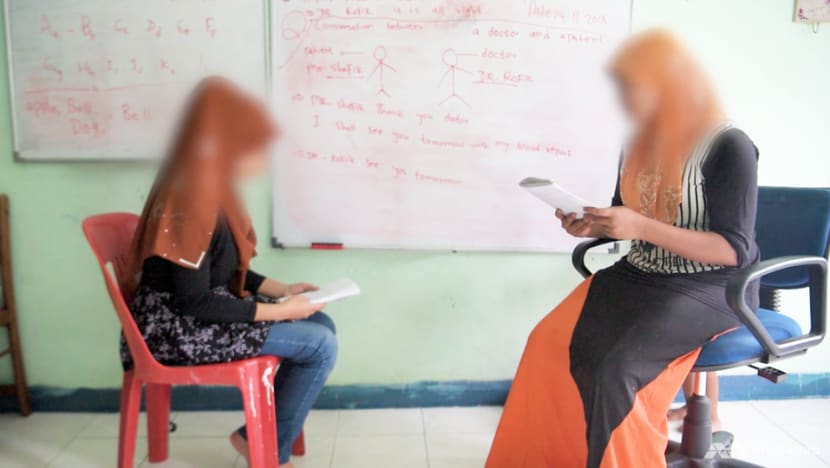
One of the strongest encouragements he received was from a Malaysian he had met in Aceh. Ms Lilianne Fan, the international director of refugee assistance organisation Geutanyoe Foundation, has been like a “teacher” and “sister” to him since they met.
“She was really proud and (saying), ‘Hasson, you really did a great job,’” he recounted. “And she supported that school with funding.”
It was Ms Fan, 41, whom he approached when he had an idea for medical assistance and a literacy project for Rohingya families and women.
He used to accompany Rohingya women to hospital and the clinics as their translator, but sometimes “they couldn’t explain to me what had happened to them because they were shy”, said Mr Hasson.
From there, the concept for the women’s classes took shape, including for “young girls who were sitting at home not going to school because her family doesn’t want her to go far”.
”We said, okay, if we bring this school to the homes for these kinds of girls … the parents can’t say, 'my daughter can’t go out',” he explained.
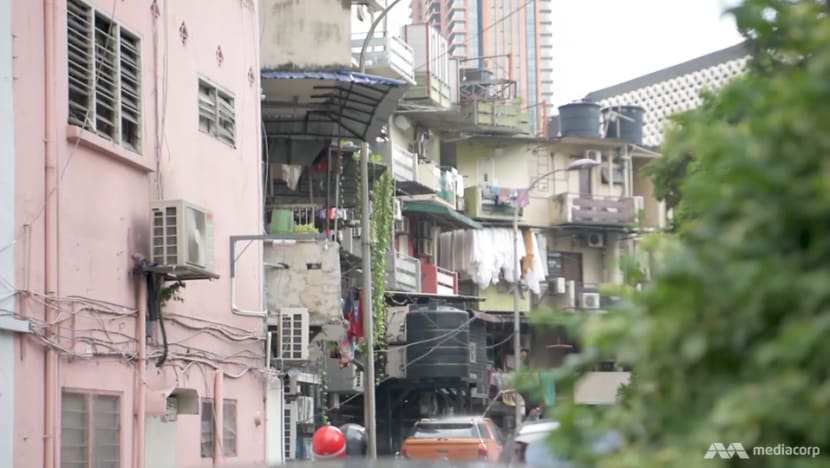
It was not easy trying to convince people, however, especially husbands who thought there was “no need for the mothers to study”. But this teenager had a counter-argument that mothers were important.
“What is she going to teach to your children if the children are going to school and … you don’t know anything (and) your wife doesn’t know?” he asked the men.
“If she knows a little bit, she can check on her children at home.”
Some of the husbands relented, but he then had to find female Rohingya teachers.
Bit by bit, he built up a small pool of them, went door to door with them to speak again to the men in “every house”, and in December 2017, the programme was started.
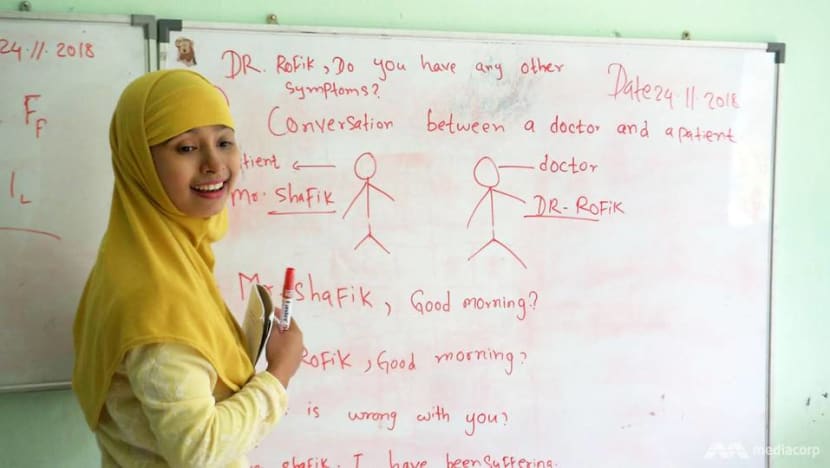
There are now 50 to 70 students in total, spread across six classes. He is also facilitating a handful of medical cases, ranging from accidents to births and including a Rohingya man in Johor who has cancer.
The programmes and salaries, including Mr Hasson’s, are funded by Geutanyoe Foundation – which means he now gets to enjoy a state of stability unlike his first few weeks in Malaysia, when he worked 17 days for a supermarket but was paid only for five days.
He'd then had to change his job to selling poultry in a market, in order to pay back the RM8,000 he borrowed from people, his mother included, to pay his traffickers.
DRIVEN TO MAKE AN IMPACT
Mr Hasson’s family is proud of him - Ms Fan, who met them in Bangladesh, told them what he was doing.
“They never expected something like what I’m doing here. They thought I was working in an office, just sitting there,” he said.
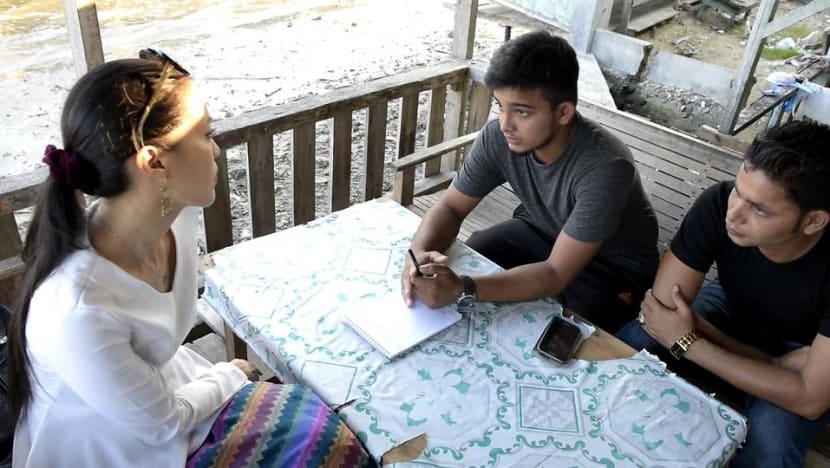
His English has also improved compared to the “terrible” grasp he had when he was in Aceh. He was able to take language classes in Malaysia, but has made no other educational progress towards becoming a doctor.
In any case, his medical dreams have since changed to hopes of entering journalism.
He explained: “I want people to speak. I don’t want them to keep silent. There are a lot of people who want to speak, but they don’t know how … and who to contact.”
Asked how he felt about helping others, rather than himself, he said he was “blessed”.
He thinks more must be done, however, to allow refugees in Malaysia to work legally, not be dependent on handouts and give their children a better education.
There are close to 43,000 refugee children below the age of 18 in Malaysia, and the local UNHCR office supports nearly 130 informal refugee schools. “They just want some way to send their kids to a good school – better school – for their better future,” said Mr Hasson.
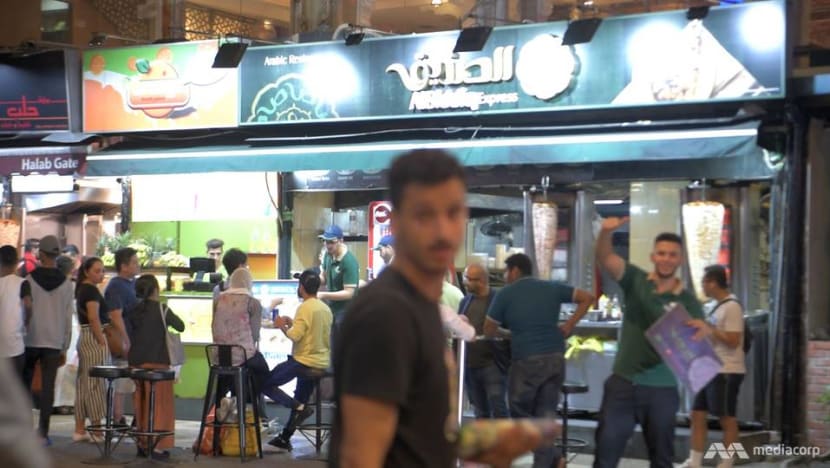
Last year, the government also began a pilot project to allow 300 Rohingya refugees to work legally in the country. There is a long way to go, but every effort counts, as Mr Sepas’ experience has shown him.
One of his troupe members, Mr Mohammad Ismaeil Zafari, was so depressed after coming to Malaysia – with no end in sight to the war in Afghanistan, where his family is – that he attempted suicide.
But joining Parastoo has helped his “mental issues to fade away”, said the 43-year-old.
Just a year ago, when CNA Insider first met him, Mr Sepas was unsure where he would end up with his theatre project. He had been visibly under stress from managing actors who did not always take rehearsals seriously, and from struggling to pay them.
But over the months, their work has received recognition. In August, the AirAsia Foundation approved a one-year grant of RM55,000 for Parastoo to help it train new actors and mount regular performances.
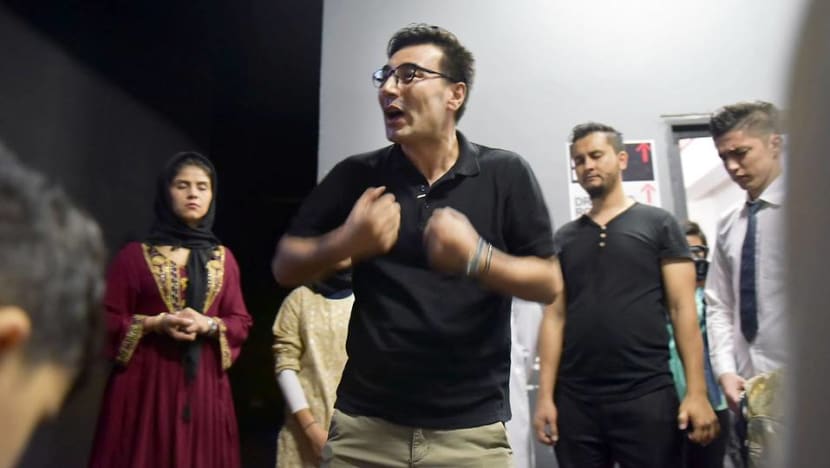
The troupe is now 15-strong and has done about 10 public performances and three workshops.
Ms Kong Phui Yi, who helps to organise the workshops and plays at schools for the troupe, as well as moderate their post-performance engagement sessions with their audiences, thinks Mr Sepas is “opening up conversations”.
"He’s scratching the surface of issues that refugee communities face, and there’s a lot more to be done,” said the 27-year-old Malaysian.
The theatre director sees the need to dispel not only the negativity refugees might feel, but also the negative attitudes locals might have towards them.
“Local people didn’t know why we left our country before. They had misconceptions about refugees. But now the reality is clear to them,” he said.
They thought refugees had no knowledge and skills … We’ve proved by (our) workshops and practices that we all have common pain.
"We’ve created mutual respect – that the refugees and peoples of the locality think of a common humanity.”
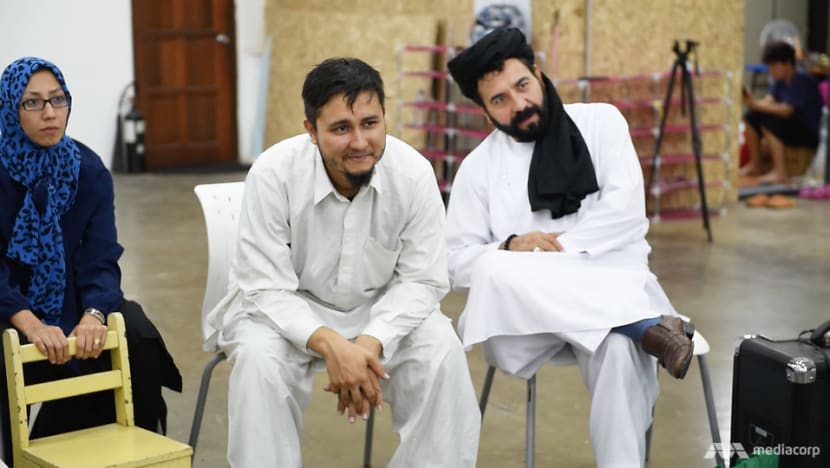
The future, however, is still a mystery for him and Mr Hasson. The latter wants to see his homeland, Myanmar, and make it his real home one day.
Mr Sepas would like to return to Afghanistan, but sees no way of that happening currently. He may want to move to another country, like Canada or Australia, for his children. But what would he find there?
For now, they are driven to make an impact on their people at a time when the situation of refugees around the world is as difficult as it has ever been.
